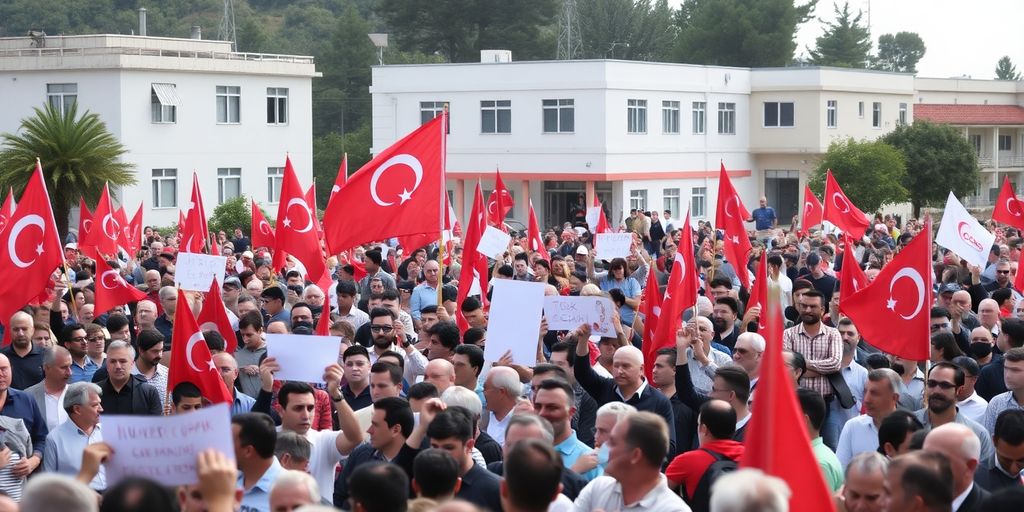Several thousand Turkish Cypriots gathered in Nicosia to protest against what they perceive as Turkey’s encroachment on their secular education system. The demonstrators voiced their concerns over recent changes that they believe aim to introduce Islamic principles into schools, marking a significant moment in the ongoing struggle for cultural identity in the region.
Key Takeaways
- Thousands protested in Nicosia against Turkey’s influence on education.
- The protest was sparked by the lifting of a ban on headscarves in high schools.
- Organizers claim the changes threaten the secular nature of Turkish Cypriot society.
- Turkish President Erdogan is set to visit the region, potentially escalating tensions.
Background of the Protest
The protest took place in the northern part of Cyprus, which has been under Turkish control since the island was divided in 1974 following Turkey’s military intervention. The Turkish Cypriot community has historically maintained a secular identity, but recent actions by the Turkish government have raised alarms about the potential Islamization of their society.
The immediate catalyst for the protests was the decision by Turkish Cypriot authorities to lift a ban on wearing headscarves in high schools. This move has been interpreted by many as an attempt to impose political Islam on a community that has prided itself on its secularism.
Voices of the Protesters
Elma Eylem, president of the Turkish Cypriot Secondary Education Teachers’ Union (KTOEÖS), emerged as a key figure in the protests. She described the lifting of the headscarf ban as a form of "social engineering" aimed at reshaping Turkish Cypriot society to align more closely with the values of Turkey’s ruling AKP party.
Eylem stated, "This step has been taken in the divided part of our island which has been turned into a sub-administration of Turkey… This change in the statute is a part of social engineering."
The protesters carried banners with slogans such as "It won’t pass" and "Cyprus will stay secular," emphasizing their commitment to preserving their cultural identity against perceived external pressures.
Government Response and Future Implications
The protests come at a time of heightened political sensitivity, with Turkish President Recep Tayyip Erdogan scheduled to visit northern Cyprus shortly after the demonstrations. Erdogan has reportedly indicated that he will address the protesters directly, which could further inflame tensions between the Turkish Cypriots and the Turkish government.
In response to the lifting of the headscarf ban, teachers at some schools have taken a stand, refusing to allow students to wear headscarves, asserting that this is not merely a matter of personal freedom but a broader issue of political Islam being imposed on their community.
Ongoing Struggle for Secularism
The protests are part of a larger struggle for the Turkish Cypriot community to maintain its secular identity in the face of increasing influence from Turkey. The Turkish Cypriot community has expressed concerns that their political autonomy and cultural identity are being undermined by Ankara’s policies.
A legal challenge against the headscarf ban has been initiated at the Turkish Cypriot Constitutional Court, signaling that this issue will continue to be a focal point of contention in the region. Eylem emphasized that their fight for secularism and against political Islam will be a long-term struggle, reflecting the deep-seated concerns within the community about their future.
As the situation develops, the Turkish Cypriots remain vigilant, determined to protect their secular roots and resist any attempts to alter their cultural landscape.






